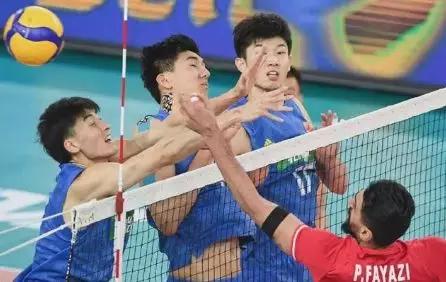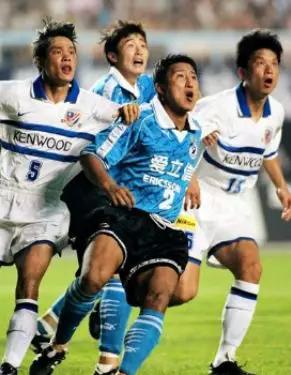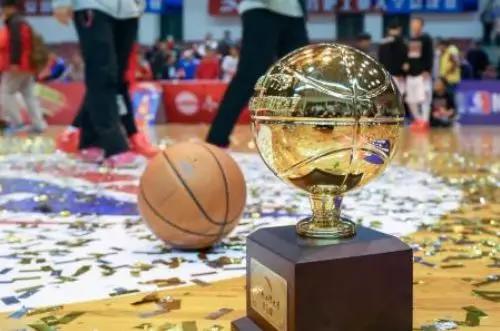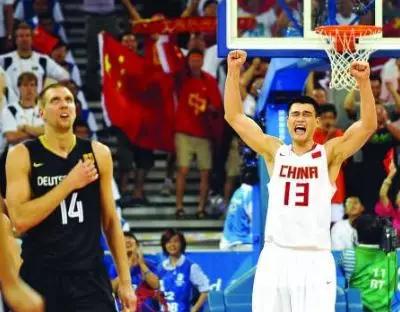It is very likely that the men’s three big balls will be absent from the Olympic Games collectively, so we must talk about this lesion
January 12th, 2020, this day is worth remembering for China sports.
When I woke up, the men’s volleyball team and the Olympic Games lost to their opponents in the competition for the qualification of the Tokyo Olympic Games, and both said goodbye to Tokyo.

Coupled with the China men’s basketball team, which missed the direct promotion in the World Cup and had little chance of the play-offs, it is almost certain that China’s men’s three major balls will be absent from the Olympic Games for the first time in 36 years.
Slowly hit a question mark, which is almost the state of everyone who hears the news; Leaving a string of ellipsis silently has become the mentality that many fans are accustomed to such news.
The collective loneliness of the three big balls can not help but make people look at the professional development of our sports again.
The problem of professionalism cannot be hidden.
Back in time, 40 years ago, competitive sports was still a national affair, and athletes were paid wages and allowances. In that era, sports had little to do with money, and sports left us more inspiration and emotion.

In 1994, we finally made up our mind to build a professional football league of our own. After New Year’s Day that year, 25-year-old Fan Zhiyi got his first monthly salary after becoming a "professional player" — — 2500 yuan. For ordinary people with a monthly salary of two or three hundred at that time, this is definitely an "astronomical figure."
In 2019, the China Football Association issued a "salary limit order", stipulating that contracts signed by domestic players after November 20, 2019 are new contracts, and the pre-tax maximum salary does not exceed 10 million RMB, indicating that the Football Association has "can’t stand" the high salary of players.
From the past, the income was close to ten times that of ordinary people, and now I don’t know how many times it is. The professionalization of football brings players a lot of money, but it brings more inner "fragmentation" to fans.

When we don’t have much money, our football level can still "gallop across Asia" and enter a World Cup. Why is it that when we have money, the road to professionalism has taken so long, but it is hard to win?
Although achievement is not the only thing in competitive sports, it is the most intuitive KPI to observe the development of professionalism. It is not accidental that the men’s three big balls collectively "failed" the Olympic Games, but it is a concentrated manifestation of the inherent problems of China’s sports professionalization over the years.
Professionalization is not simple imitation and excessive commercialization.
In the development of sports professionalization, European and American countries and regions are well-deserved "leaders". For example, the development of professional leagues in the United States is relatively successful, and the "four major leagues" have strong influence all over the world. The contribution of professional sports to its economic and social development far exceeds the scope of sports.

For big ball sports, the objective requirements of high intensity and strong confrontation are not ruled out, but these "congenital factor theories" are more like an excuse in the face of the fact that Japanese and Korean players are blooming in the five major leagues of European football, which makes Lei Wu "wandering" alone in Spain even more sad.
Looking back on the road that sports professional leagues have traveled for so many years, we will more or less see the shadow of mature leagues in Europe and America. It is necessary to learn advanced, but the road of sports professionalization can’t be copied successfully by copying and pasting. It looks like it is unprepared. It is doomed to fail only by working hard on fur and packaging, and it can’t walk out of its own professional road by imitating regardless of differences.
In fact, some of our leagues are almost the same as mature leagues in form. We have everything in the regular season and playoffs, and awards such as top scorer and MVP have been awarded, but we have neglected the virtuous circle of a series of more important factors behind these mature professional leagues, such as advanced concepts, supporting models, social interaction and talent training.

In addition, some people’s understanding of professional leagues is too simple, and they equate professionalism with commercialization, thinking that "investment is in place, players are rich, the market is booming, and advertisements are placed" is professionalism.
As a result, commercialization has replaced professionalism. Everything is about money, and everything is about profit. As a result, professionalism has been stumped by impetuousness and chaos, supervision and morality have lost their position, and scandals such as match-fixing, black whistle and corruption are common. Such professionalism has failed to promote the level of competition.
A hurdle that must be overcome
Furthermore, before going professional, we took the national system, so although we can win gold and silver in the Olympic Games, the gold medals we won are basically "minority events" with insufficient popularization.
However, to build a sports power, it is not only supported by harvesting gold medals in "minority events", but also must occupy a place in popular and world-wide competitive events such as "Three Big Balls". The development of such projects depends only on competition, and we have no choice but to develop professionalism.
After the pilot of football professionalization, basketball and volleyball leagues have also begun. The league is made up of clubs, but most of the clubs at that time were born out of sports teams, and they were not really professional clubs. Such "congenital deficiency" clubs should not only serve the market, but also obey the administration, and even sacrifice for the Olympic Games and the National Games strategy. Even in the context of the separation of government and enterprise and the separation of management and operation, professional leagues are not so professional.
Some people think that sports are competitive sports when they talk about it. When they talk about competitive sports, they simply equate it with the Olympic Games, and link the level of competitive sports with the Olympic gold medal. They think that the Olympics is everything, and the league serves the Olympic training. Simple thinking and gold medal worship can’t make China’s sports really strong, on the contrary, it makes China’s sports professionalization lack international vision more and more.
Under the influence of this concept, the core question of professional development, "What is the purpose of sports professionalization and whether professional leagues should be led by the market or the administration", has not been answered. The goal and direction of development are not clear, and it is common for sports professionalization reform to appear repeatedly.
The reform is bound to be painful, but once some projects experience retrogression, the previous reforms will be limited, thus returning to the old road of market sidelining and administrative command "chasing gold and winning silver", and the deep-seated reform of professionalization cannot be smoothly promoted, which is also a hurdle that must be crossed on the road of sports professionalization in China.

In fact, over the years of professionalization, we have gained world-class athletes like Yao Ming and Li Na, but we should think more about how their "golden period" came about. If we don’t understand the truth, there will be many twists and turns on the road of sports professionalization in China.